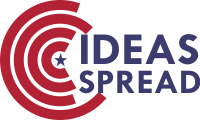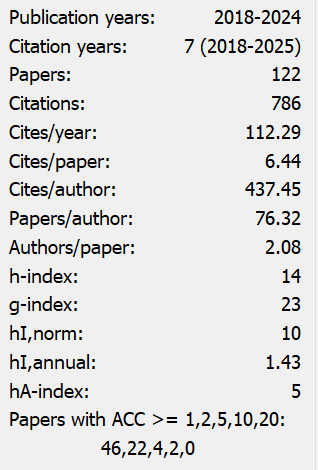A Review of Research on the Impact of Workplace AI Awareness on Employees: An IT Mindfulness Perspective
Abstract
Under the wave of digital-intelligence transformation, AI technology is more and more widely used in enterprises, which has profoundly changed the career model and organizational ecology, promoted the generation of AI awareness among employees, and then had various impacts on employees' psychology and behaviour. This study systematically combs and deeply analyses the existing research results, and comprehensively expounds the impact of employees' AI awareness on employees' psychology and behaviour. At the same time, from the perspective of IT mindfulness, this paper explores the mechanism of IT mindfulness in the relationship between AI awareness and employees' work, and analyses the ways to alleviate the negative impact of AI awareness, aiming to provide theoretical support for the integration of enterprise management employees and AI technology, help employees achieve career development and physical and mental health in the AI era, and point out the direction for follow-up research. For example, mining the deep mechanism of interaction between IT mindfulness and AI awareness, developing effective intervention measures to improve the level of IT mindfulness of employees, etc.
References
[2] Xu, G., & Wang, H. (2022). Research on the influence of technology impact awareness on employees' willingness to support change: Based on the development of artificial intelligence. East China Economic Management, 36(6), 119–128.
[3] Brougham, D., & Haar, J. (2018). Smart technology, artificial intelligence, robotics, and algorithms (STARA): Employees’ perceptions of our future workplace. Journal of Management & Organization, 24(2), 239–257. https://doi.org/10.1017/jmo.2016.55
[4] Lin, Q., & He, L. (2024). Does artificial intelligence (AI) awareness affect employees in giving a voice to their organization? A cross-level model. International Journal of Hospitality Management, 123, 103947. https://doi.org/10.1016/j.ijhm.2024.103947
[5] Pereira, V., Hadjielias, E., Christofi, M., et al. (2023). A systematic literature review on the impact of artificial intelligence on workplace outcomes: A multi-process perspective. Human Resource Management Review, 33(1), 100857. https://doi.org/10.1016/j.hrmr.2021.100857
[6] Wei, S., Zhu, F., & Chen, X. (2021). Do stressors stifle or facilitate employees’ innovative use of enterprise systems: The moderating role of IT mindfulness. Information Technology & People, 34(3), 955–977. https://doi.org/10.1108/ITP-09-2019-0499
[7] Thatcher, J. B., et al. (2018). Mindfulness in information technology use: Definitions, distinctions, and a new measure. MIS Quarterly, 42(3), 831–847. https://doi.org/10.25300/MISQ/2018/11881
[8] Wu, T. J., Liang, Y., & Wang, Y. (2024). The buffering role of workplace mindfulness: How job insecurity of human-AI collaboration impacts employees’ work–life-related outcomes. Journal of Business and Psychology. https://doi.org/10.1007/s10869-024-09963-6
[9] Zou, Y., Zhou, Y., & Huang, Q. (2023). Employees' active learning behavior under the impact of artificial intelligence technology. Science and Technology Management Research, 43(17), 180–187.
[10] Xu, G., & Wang, H. (2023). The impact of artificial intelligence impact awareness on employee career satisfaction: The role of job stress and goal orientation. Human Resources Development of China, 40(7), 15–33.
[11] Ding, W., Huang, Z., & Dong, R. (2024). Is the awareness of the impact of digital intelligence technology the resistance or thrust of employees' innovation? Commercial Economy, (11), 110–115.
[12] He, Q., Liu, M., & Li, X. (2024). Will AI trigger employees' knowledge hiding behavior? Based on the theoretical perspective of relative deprivation. Foreign Economic and Management, 46(1), 55–70.
[13] Ding, L. (2021). Employees’ challenge-hindrance appraisals toward STARA awareness and competitive productivity: A micro-level case. International Journal of Contemporary Hospitality Management, 33(9), 2950–2969. https://doi.org/10.1108/IJCHM-09-2020-1038
[14] Liang, X., Guo, G., Shu, L., et al. (2022). Investigating the double-edged sword effect of AI awareness on employee’s service innovative behavior. Tourism Management, 92, 104564. https://doi.org/10.1016/j.tourman.2022.104564
[15] Presbitero, A., Teng-Calleja, M., & Farndale, E. (2022). Employee perceptions of HRM system strength: Examining outcome and boundary conditions. Personnel Review, 51(9), 2142–2161. https://doi.org/10.1108/PR-12-2020-0878
[16] Chen, K. H. (2023). Research on the double-edged influence mechanism of AI awareness on employees' breakthrough creativity [Master's thesis, Huazhong University of Science and Technology].
[17] Li, J., Bonn, M. A., & Ye, B. H. (2019). Hotel employee’s artificial intelligence and robotics awareness and its impact on turnover intention. Tourism Management, 73, 172–181. https://doi.org/10.1016/j.tourman.2019.02.006
[18] Lingmont, D. N. J., & Alexiou, A. (2020). The contingent effect of job automating technology awareness on perceived job insecurity. Technological Forecasting and Social Change, 161, 120302. https://doi.org/10.1016/j.techfore.2020.120302
[19] Arias-Pérez, J., & Vélez-Jaramillo, J. (2022). Understanding knowledge hiding under technological turbulence. Journal of Knowledge Management, 26(6), 1476–1491. https://doi.org/10.1108/JKM-01-2021-0058
[20] Swanson, E. B., & Ramiller, N. C. (2004). Innovating mindfully with information technology. MIS Quarterly, 28(4), 553–583. https://doi.org/10.2307/25148655
[21] Dernbecher, S., & Beck, R. (2017). The concept of mindfulness in information systems research: A multi-dimensional analysis. European Journal of Information Systems, 26(2), 121–142. https://doi.org/10.1057/s41303-016-0032-z
[22] Esmaeilzadeh, P. (2020). The role of information technology mindfulness in the postadoption stage of personal health devices. JMIR Mhealth and Uhealth, 8(10), e18122. https://doi.org/10.2196/18122
[23] Roberts, N., Thatcher, J., & Klein, R. (2007). Tying context to post-adoption behavior with information technology: A conceptual and operational definition of mindfulness.
[24] Chen, Y., Wang, X., & Benitez, J., et al. (2022). Does techno-invasion lead to employees’ deviant behaviors? Journal of Management Information Systems, 39(2), 454–482. https://doi.org/10.1080/07421222.2022.2063557
[25] Ioannou, A., Lycett, M., & Marshan, A. (2024). The role of mindfulness in mitigating the negative consequences of technostress. Information Systems Frontiers, 26(2), 523–549. https://doi.org/10.1007/s10796-021-10239-0
[26] Qahri-Saremi, H., Mueller-Luckey, G., & Robinson, R., et al. (2018). Actualization of electronic health records affordances. In Hawaii International Conference on System Sciences. https://doi.org/10.24251/HICSS.2018.383
[27] Ioannou, A. (2023). Mindfulness and technostress in the workplace: A qualitative approach. Frontiers in Psychology, 14, 1252187. https://doi.org/10.3389/fpsyg.2023.1252187
[28] Wu, W., & Li, J. (2023). How employee mindfulness affects unethical pro-organizational behavior: The perspective of self-regulation theory. Journal of Business Economics and Management, (5), 5–16.
[29] Zhao, J., Hu, E., Han, M., et al. (2023). That honey, my arsenic: The influence of advanced technologies on service employees’ organizational deviance. Journal of Retailing and Consumer Services, 75, 103490. https://doi.org/10.1016/j.jretconser.2023.103490
[30] Yin, Z., Kong, H., Baruch, Y., et al. (2024). Interactive effects of AI awareness and change-oriented leadership on employee-AI collaboration. Tourism Management, 105, 104966. https://doi.org/10.1016/j.tourman.2024.104966
[31] Langer, M., & Landers, R. N. (2021). The future of artificial intelligence at work: A review. Computers in Human Behavior, 123, 106878. https://doi.org/10.1016/j.chb.2021.106878
[32] Shirish, A., Chandra, S., & Srivastava, S. C. (2021). Switching to online learning during COVID-19. International Journal of Information Management, 61, 102394. https://doi.org/10.1016/j.ijinfomgt.2021.102394
[33] Kang, D. Y., Hur, W. M., & Shin, Y. (2023). Smart technology and service employees’ job crafting. Journal of Retailing and Consumer Services, 73, 103282. https://doi.org/10.1016/j.jretconser.2023.103282
[34] Hur, W. M., & Shin, Y. (2024). Service employees’ STARA awareness and proactive service performance. Journal of Services Marketing, 38(4), 426–442. https://doi.org/10.1108/JSM-03-2023-0115
[35] Khan, J., Jaafar, M., Mubarak, N., et al. (2024). Employee mindfulness, innovative work behaviour, and IT project success. Information Technology & Management, 25(2), 145–159. https://doi.org/10.1007/s10799-022-00369-5
[36] Montani, F., Courcy, F., & Battistelli, A., et al. (2021). Job insecurity and innovative work behaviour. Stress and Health, 37(4), 742–754. https://doi.org/10.1002/smi.3034
[37] Chen, H., & Eyoun, K. (2021). Do mindfulness and perceived organizational support work? International Journal of Hospitality Management, 94, 102850. https://doi.org/10.1016/j.ijhm.2020.102850
[38] Einola, K., & Khoreva, V. (2023). Exploring the co-existence of humans and artificial intelligence. Human Resource Management, 62(1), 117–135. https://doi.org/10.1002/hrm.22147
[39] Kong, H., Yin, Z., Baruch, Y., et al. (2023). The impact of trust in AI on career sustainability. Journal of Vocational Behavior, 146, 103928. https://doi.org/10.1016/j.jvb.2023.103928
[40] Wang, Y. Y., & Wang, Y. S. (2022). Development and validation of an artificial intelligence anxiety scale. Interactive Learning Environments, 30(4), 619–634. https://doi.org/10.1080/10494820.2019.1674887
[41] Suseno, Y., Chang, C., Hudik, M., et al. (2022). Beliefs, anxiety and change readiness for AI adoption. The International Journal of Human Resource Management, 33(6), 1209–1236. https://doi.org/10.1080/09585192.2021.1931408
[42] Bakker, A. B., & Demerouti, E. (2017). Job demands-resources theory: Taking stock and looking forward. Journal of Occupational Health Psychology, 22(3), 273–285. https://doi.org/10.1037/ocp0000056

This work is licensed under a Creative Commons Attribution 4.0 International License.
Copyright for this article is retained by the author(s), with first publication rights granted to the journal.
This is an open-access article distributed under the terms and conditions of the Creative Commons Attribution license (http://creativecommons.org/licenses/by/4.0/).


























